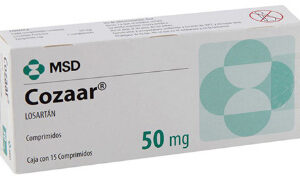Glucophage, also known by its generic name metformin, is a medication commonly prescribed to treat type 2 diabetes. It belongs to a class of drugs called biguanides, which work by decreasing the amount of glucose produced by the liver and increasing the body’s response to insulin. Glucophage is available in tablet form and is typically taken orally one to three times a day, with meals. This medication is not indicated for use in patients with type 1 diabetes or diabetic ketoacidosis.
Important Precautions
Before starting Glucophage, it is important to inform your healthcare provider about any allergies you have, especially if you are allergic to metformin or any other ingredients in the medication. Additionally, you should discuss your medical history, especially if you have kidney or liver disease, heart problems, certain types of metabolic disorders, or if you are currently pregnant or breastfeeding. Glucophage should not be used in patients with severe kidney impairment or those with a creatinine clearance below 30 mL/min.
What to Expect When Taking Glucophage
While Glucophage is generally well tolerated, it can cause some side effects. Commonly reported side effects include diarrhea, nausea, vomiting, stomach discomfort, gas, and headache. These side effects are usually mild and go away on their own. If they persist or become bothersome, it is important to contact your healthcare provider. In rare cases, Glucophage can cause a serious condition called lactic acidosis, characterized by abdominal or stomach discomfort, decreased appetite, diarrhea, fast or shallow breathing, muscle pain or cramping, and unusual sleepiness, among other symptoms. If you experience these symptoms, seek immediate medical attention.
How to Use
Glucophage should be taken exactly as prescribed by your healthcare provider. The dose and frequency of administration may vary depending on your individual needs, medical condition, and response to treatment. It is typically recommended to start with a low dose and gradually increase it to minimize gastrointestinal side effects. Glucophage tablets should be swallowed whole with a full glass of water, preferably with meals. If you miss a dose, take it as soon as you remember. However, if it is close to the time of your next dose, skip the missed dose and resume your regular dosing schedule. Taking too much Glucophage can lead to an overdose, which may cause symptoms such as severe nausea, vomiting, diarrhea, confusion, drowsiness, and even unconsciousness. If you suspect an overdose, seek medical attention immediately.
Glucophage Compatibility
Glucophage may interact with other medications, which can affect its efficacy or increase the risk of side effects. Some drugs that may interact with Glucophage include certain diuretics, corticosteroids, phenothiazines, thyroid medications, hormonal contraceptives, and beta-blockers, among others. It is important to inform your healthcare provider about all medications, including prescription, over-the-counter, and herbal products, that you are taking before starting Glucophage. Your healthcare provider will determine the best course of action based on potential drug interactions.
Questions Answered
-
Can I drink alcohol while taking Glucophage?
It is generally recommended to avoid excessive alcohol consumption while taking Glucophage. Alcohol can affect your blood sugar levels and increase the risk of lactic acidosis.
-
What should I do if I experience severe diarrhea while taking Glucophage?
If you experience severe diarrhea, it is important to contact your healthcare provider. They will assess your condition and may adjust your treatment plan accordingly.
-
Can Glucophage cause low blood sugar?
While Glucophage does not usually cause hypoglycemia on its own, it can increase the risk of low blood sugar when combined with other medications or lifestyle factors.
-
Should Glucophage be taken with meals?
Glucophage is generally taken with meals to reduce the likelihood of stomach upset. However, it is important to follow your healthcare provider’s instructions regarding the timing and dosage of the medication.
-
Can Glucophage be used during pregnancy?
Glucophage may be prescribed during pregnancy, but it is important to discuss the potential risks and benefits with your healthcare provider. They will evaluate your specific situation and make an informed decision.






Reviews
There are no reviews yet.